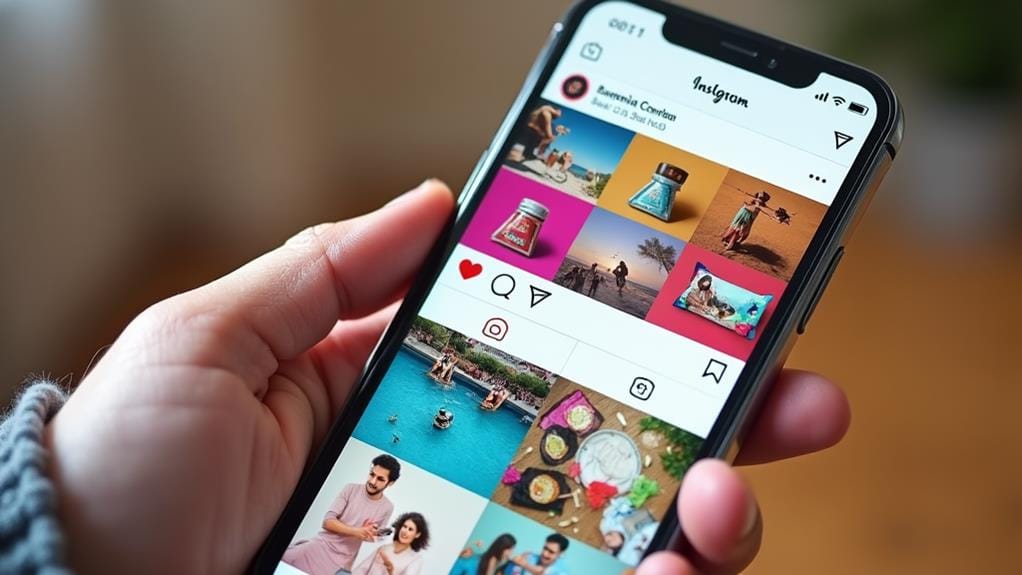

You're missing out on a massive digital opportunity if your social media profiles aren't optimized for search engine optimization (SEO). With over 30% of users relying on social platforms to search for products and services, it's essential you align your profiles with your SEO strategy. Consistent branding, keyword-rich "About" sections, and website links in bios can boost visibility and drive traffic. By optimizing your profiles, you'll enhance online presence, credibility, and local SEO visibility. By taking control of your social media SEO, you'll access the full potential of your online presence and discover new ways to grow your brand.
One of the most vital components of a well-rounded online presence is social media SEO, which enables your brand to reach a broader audience and boost visibility in search engine results. By optimizing your social profiles and content, you can improve your visibility in search, drive more website traffic, and ultimately enhance brand following.
With over 30% of users leveraging social platforms as search engines for product searches, and nearly 40% of younger users preferring platforms like TikTok and Instagram[3] for local searches, it's clear that consumer behavior is shifting. Ensuring NAP consistency across your social media profiles can greatly enhance your local SEO credibility and customer[4] trust.
Effective social media SEO requires consistent and relevant keyword integration in your profiles, particularly in sections like About Us and Services. This helps search engines better understand and index your brand.
Engagement metrics like likes, shares, and comments also act as social signals that can indirectly influence search engine rankings, making active audience interaction essential for successful social media SEO. By incorporating these strategies, you can stay ahead of the competition, drive revenue growth, and solidify your online presence.
Your social media profiles are often the first point of contact between your brand and potential customers, making it crucial to optimize them for maximum visibility and engagement. Actively engaging with your audience on these platforms can greatly amplify your local SEO efforts, as social media impacts SEO through enhanced brand visibility and user interaction.
You can start by guaranteeing consistency in branding across all your social media profiles. Use the same business name, logo, and imagery to enhance brand recognition and credibility. Don't forget to optimize the "About" section with relevant keywords that reflect your services and offerings, improving search engine understanding and visibility.
Including your website link in the bio section of your social media profiles serves as a follow link that can drive traffic and enhance audience engagement. Regularly audit your social media profiles to guarantee they align with your website SEO strategies, focusing on critical sections like Services and Products to boost discoverability.
Additionally, utilize location tagging in your posts and profile to improve local SEO visibility, attracting nearby users and increasing engagement within your community. By taking these steps, you'll be able to increase your content reach and drive more traffic to your website.

Creating Engaging Social Content
Crafting compelling social content is key to capturing your audience's attention and driving engagement. As a content creator, you need to focus on producing engaging content that resonates with your community.
To boost visibility and positive interaction, incorporate high-quality visuals into your posts. Content with images receives 94% more views than text-only posts, making it a no-brainer for content creators. Additionally, fostering community interaction by initiating conversations can lead to even greater engagement.
To take your content to the next level, consider the following strategies:
Building on the foundation of creating engaging social content, partnering with influencers can greatly amplify your brand's online presence. By collaborating with influencers, you can tap into their established audience and drive more traffic to your profiles. In fact, 24% of consumers report making purchases based on influencer recommendations, particularly among younger demographics.
| Benefit | Outcome |
|---|---|
| Enhanced brand visibility | Increased reach and impressions on social media |
| Authentic content creation | Higher engagement rates and fostered trust and loyalty among consumers |
| Valuable backlinks and social signals | Improved search rankings and optimized profiles |
When you partner with influencers, you're not only boosting credibility but also expanding your reach. By tagging influencers in your posts, you can leverage their audience and drive more traffic to your profiles. Consider establishing a brand ambassador program to create long-term relationships and guarantee continuous promotion and consistent messaging across platforms. This will lead to enhanced brand awareness and optimized profiles. By incorporating influencer marketing[1] into your strategy, you'll be able to create valuable content that resonates with your audience and drives results.

Measuring social media impact is essential to understanding the effectiveness of your online strategy. By tracking key performance indicators (KPIs) such as engagement rates, website traffic, and conversion rates, you can assess the success of your social media efforts and make informed adjustments to optimize your SEO.
Utilizing analytics tools like Google Analytics[2] and platform-specific insights provides valuable data on audience demographics, post reach, and user interactions. Additionally, understanding social media ROI provides intelligent data for smart actions, allowing you to refine your approach based on what truly drives results in your campaigns.
To better inform your strategy, consider using various metrics to evaluate success.
To effectively measure social media impact, focus on the following metrics:
You can increase visibility using SEO by conducting keyword research, crafting a content strategy, targeting your audience, and tracking engagement metrics, while also optimizing images, using hashtags, building links, and posting frequently to outsmart platform algorithms.
You can optimize your social media presence by incorporating relevant keywords in profile descriptions, utilizing a hashtag strategy, maintaining content consistency, and tracking engagement metrics, while also focusing on visual branding and audience targeting.
You optimize your SEO profile by incorporating profile keywords, perfecting bio optimization, and crafting a hashtag strategy. Don't forget image alt text, link building, and content consistency to boost user engagement and track analytics for audience targeting.
You're wondering what SEO social media optimization is? It's the process of boosting your online presence by using keyword research, content strategy, and visual branding to create social signals, engagement metrics, and profile consistency across platforms.
